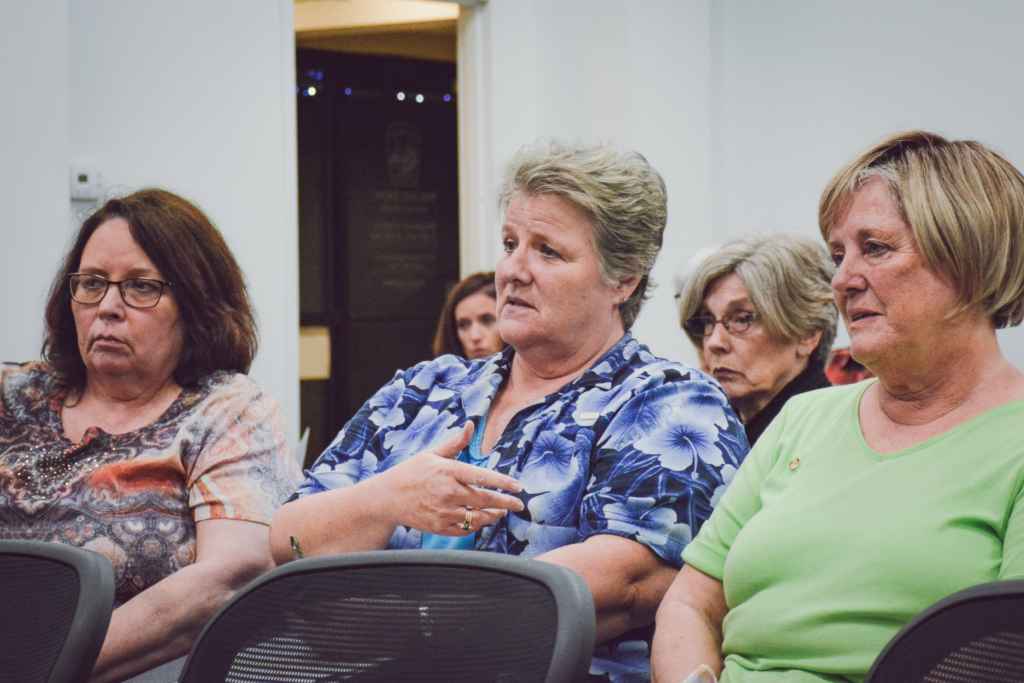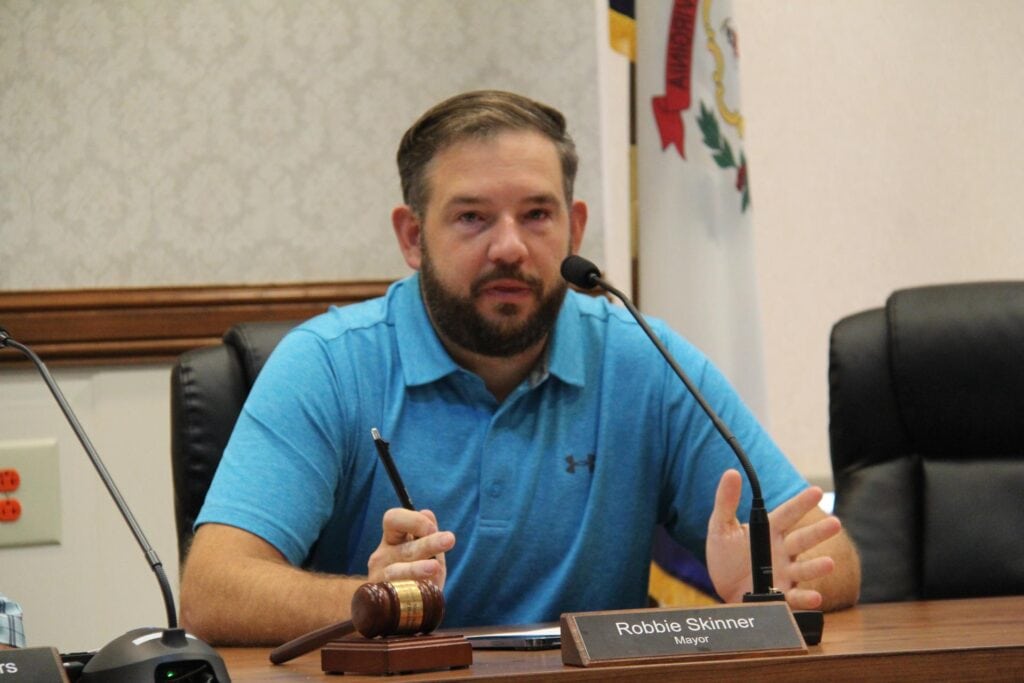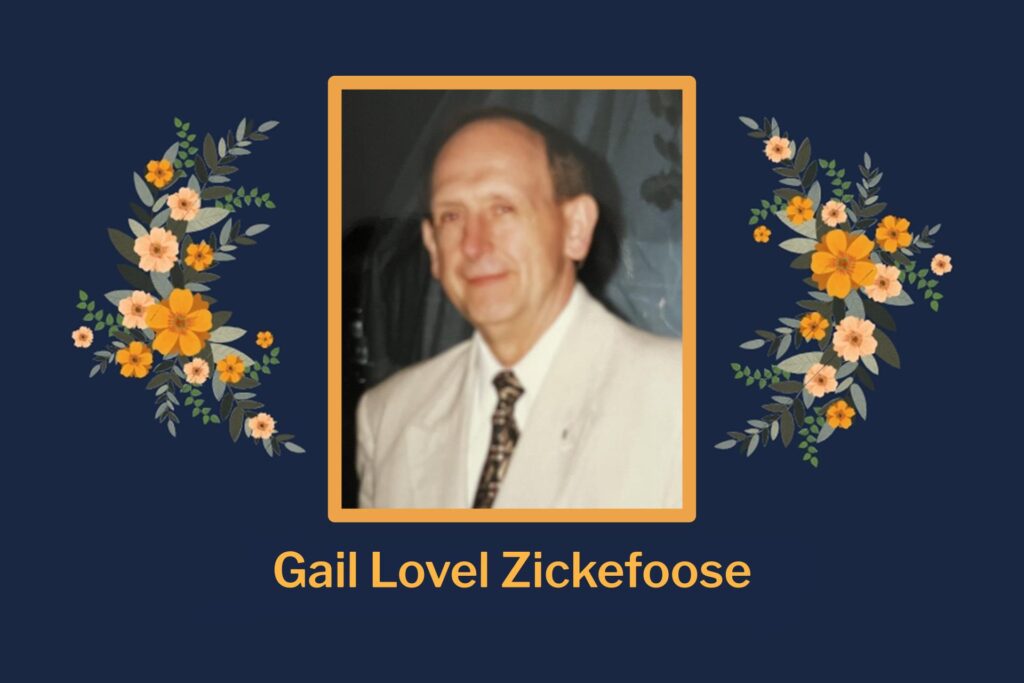BUCKHANNON – A proposed city law intended to target residences where drug-related offenses repeatedly occur is going under the knife – or at least the lawyer’s pen – one more time before city council considers it Thursday, Oct. 4.
In the wake of a public forum at the Public Safety Complex Tuesday, city attorney Tom O’Neill and mayor David McCauley said the city planned to make several changes to the ordinance after listening to the input of local landlords, who have expressed a variety of concerns about the “drug house” ordinance since council began considering it several months ago.
The ordinance provides a legal mechanism for city officials to declare certain properties, including rental properties, public nuisances and issue orders of abatement or remediation if they meet certain criteria.
Perhaps the most significant change likely to be made to the ordinance ahead of council’s meeting at 7 p.m. tonight related to exactly what set of criteria a property must meet to be deemed a public nuisance.
Prior to Tuesday’s forum, a property could be declared a public nuisance if just one of three criteria were met.
Those criteria were: the occurrence of two or more instances of prostitution or the illegal possession, storage or delivery/trafficking of controlled substances occurred on the same property twice within a consecutive two-year period; the crime allegedly committed on the property qualified as a felony, i.e. punishable by imprisonment for one year or more; or the offense was manufacture of a controlled substance, possession of a controlled substance with the intent to deliver or delivery of a controlled substance.
Based on feedback from landlords, however, O’Neill said he would likely change the language from “or” to “and,” meaning all three criteria would have to be met before a city official – the police chief, city engineer, zoning enforcement officer or other city official authorized by the city’s housing enforcement board – could seek or issue an order of abatement.
Earlier in the meeting, O’Neill explained how the ordinance would work and emphasized its intent was to target properties, not people.
He said under the law, a city official could petition the municipal court judge to issue a finding that a property qualified as a public nuisance under the ordinance and issue an order of abatement.
Once the order of abatement was issued, an owner would have 30 days to remediate the property by, for instance, evicting a problem tenant, O’Neill explained.
Should the property owner fail to comply with the abatement order within that time frame, she or he could be found guilty of a misdemeanor and be required to pay a fine ranging from $100 to $1,000.
“If you are a landlord and you are renting to a drug dealer, then you may be required to evict that drug dealer,” O’Neill said. “Does anybody want to be in the business of renting to drug dealers?”
While all the landlords in attendance could answer that question “no, of course not,” they had a few questions of their own for O’Neill and police chief Matt Gregory, who also spoke in support of the ordinance at Tuesday’s meeting.
Randy Sanders asked Gregory, O’Neill and mayor David McCauley what impact they hoped the law would have.
“I’m wanting to see what the end result you feel is actually going to be,” Sanders said. “What are the statistics from Martinsburg?”
At the outset of the meeting, Gregory had explained he’d recently consulted Maury Richards, the police chief of Martinsburg – the city Buckhannon modeled its drug house ordinance after.
In response to Sanders’ question, the Gregory said Martinsburg has seen a 91 percent reduction in recurring drug-related offenses on the same properties.
Gregory also told forum attendees he’d gleaned a couple key takeaways from that conversation, among them being that if drug problems aren’t addressed in neighborhoods, non-offending neighbors begin to move away.
“When problems are ongoing, they become a blight to the entire neighborhood that create more residual problems,” Gregory said. “I’ve long said in my reports to council that when you have a drug problem, you have a theft problem. The end result is the good people of the neighborhood moving away” because they tire of coping with the same ongoing issues.
Some landlords were concerned the ordinance wouldn’t sufficiently protect their rights, with a few asking a question about language in one section that states the property owner could be found guilty of a misdemeanor if he or she “knew, or was willfully blind to” drug offenses being committed on their rental properties.
O’Neill said the city would have to be able to prove that a landlord knew drug activity was occurring on the property.
“I would say that that’s targeted to individuals that are participating in the illegal activity and not directed towards the good landlords of this town,” the city attorney said. “This ordinance is about irresponsible landlords who are willing to just look the other way … as long as the (rent) checks clear. Those days are going to be over.”
In addition, a few residents said the ordinance wasn’t fair to individuals in recovery from addiction who were trying to find housing because passage of the ordinance would result in landlords being less willing to take a chance on a person trying to heal from addiction.
Christine Bennett said a relative of hers who had previously racked up multiple felonies has now been in recovery for more than a year, and under this ordinance, he’d likely be seen as a liability to landlords.
“I just want to say the first idea out of the gate may not be the best idea for Upshur County,” Bennett said. “Why don’t we have ‘I partner with the Buckhannon Police Department’ stickers to put on [rental properties]? Why don’t we look at some things that might be proactive?”
“This ordinance could be a stumbling block for [my relative] because these people are not going to want to rent to him and his new wife because he raises the risk of relapse, and that’s not fair,” Bennett added.
Sharla Smith, service unit director of the Buckhannon Salvation Army, said she worried the ordinance wouldn’t actually reduce drug activity but instead increase homelessness in the area.
“If you go and evict people from a home because of drug possession, so therefore they’re put out on the street,” Smith said. “We don’t have a homeless shelter.”
Smith warned the city could see an increase in “tent cities.”
“You’re trying to stop it here, but it’s just going to be created over here,” she continued. “If people are being evicted, they’re going to go right into the tent cities, and that’s where the drug problems are.”
Opportunity House executive director Matt Kerner said it would be nice to have an exception for recovery houses.
“I have five houses, and I intentionally bring drug addicts there,” Kerner said of his peer recovery network. He said that although there’s never been an instance of a resident selling drugs out of one of his recovery houses, it isn’t unthinkable.
“It would be nice if there was an exception for recovery residences,” he said.
Gregory said the alternative to the city passing the ordinance would be to “stand by idle and do nothing,” which he said wasn’t an option – especially given that he’s seen the drug epidemic worsen since he started as a city police officer more than two decades ago.
Gregory said a slew of other residual problems stem from widespread addiction to controlled substances that affect family life, medical and mental health, the local education system, and ultimately, quality of life.
“At the end of that day, that’s what the core of the matter is with this ordinance,” he said. “It addresses a more positive quality of life. We’re trying to achieve that at least.”
Gregory said he knows for sure that addiction has impacted the quality of life and people’s peace of mind in various neighborhoods throughout the city. The police chief added that addressing the drug epidemic requires a multi-faceted approach that “you can’t arrest your way out of.”
He also briefly discussed an idea known as the broken windows theory, which holds that small problems, when left to persist, inevitably fester and worsen.
“It just escalates; small problems, when left unchecked, graduate or grow into larger problems,” Gregory said.
The police chief said the ordinance wasn’t intended to alienate anyone.
“At the end of the day, this is meant to fix neighborhoods and solve problems,” he said. “It’s not means to be divisive in any way. All people have a right to housing; I know that’s been a concern. That’s undeniable, but what they don’t have a right to do is sell drugs. That’s what we’re trying to stop together.”
“The alternative to this ordinance is to stand by idle and do nothing, and hopefully, as I’ve illustrated through the broken windows theory, that’s not an option,” the chief added.
Gregory noted that although the Martinsburg Police Department has enlisted the drug house ordinance as a tool multiple times, no one has actually been fined under it.
“No one has been fined through this or in Martinsburg because on the initial notification (issuance of the order of abatement), the problem has been taken care of,” Gregory said.
McCauley said Tuesday following the meeting that provided several revisions are made, council is likely to take up the ordinance on first reading Thursday, Oct. 4 at 7 p.m. at city hall.















